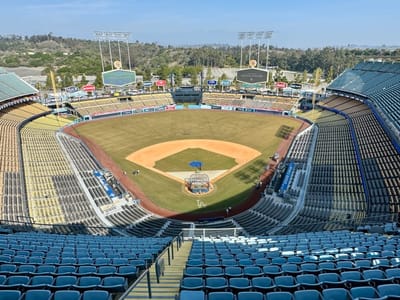The age of paradox
I noticed a trend in the books I've read lately (Everything Bad Is Good for You, Blink, and Freakonomics) is to point out things in our culture that should seem one way, but turn out to be another way entirely.
This is just a datapoint, but I couldn't help but wonder all last summer about the never ending run of Napoleon Dynamite at the local art house theater. We have this single screen, old art deco place that usually plays a very small independent movie or two each week, and then it is gone. But for a solid month they ran Dynamite, then after swapping a few others, brought it back for another few weeks of steady business. What I also found baffling was this dusty old theater was usually filled with 40 to 60 year olds watching low budget character pieces, and it was constantly packed with teens and college-aged film viewers.
Napoleon Dynamite seems like one giant paradox of entertainment to me, one that I figured had no chance of success for several reasons:
- The film has a thin plot and moves incredibly slowly. There's a joke, then twenty minutes of dead slow story, then another payoff.
The movie felt like it was four hours long to me, and I'm used to watching thin plots with lots of dead time. But the paradox is that it's a slow cooker of a film, and it's a hit with young people. That doesn't make sense, if you've read about how "kids today all have ADD" and "the jump cuts of MTV and fast pace of video games are killing their attention span." The conventional wisdom is that if you want to reach an audience of 17 year olds, make a movie like Charlie's Angels with explosions, hot women, and an easy to grasp story.
- To call the main character Napoleon Dynamite a nerd is a disservice to nerds. He goes way beyond your average geek and almost comes off as a depressed aspergers sufferer. Why on earth would every kid from the local college and high school identify with him? If you've seen the Merchants of Cool, conventional wisdom is that popular, photogenic people will always be cool and what kids will hope to attain. Are we in some sort of dystopia where most kids identify with Napoleon Dynamite because they share his experiences and not that of the "cool" folks? Is it just the Rudy-esque triumph over the jocks that his dancing reveals at the end?
That's all I have for now, but something struck me as a parallel between recent books challenging the notions we've always held as true, and the strange, wild popularity of a small, geeky, outside-of-hollywood film that met with great success, but by all measures, probably should have been a flop.
Subscribe to our newsletter.
Be the first to know - subscribe today





